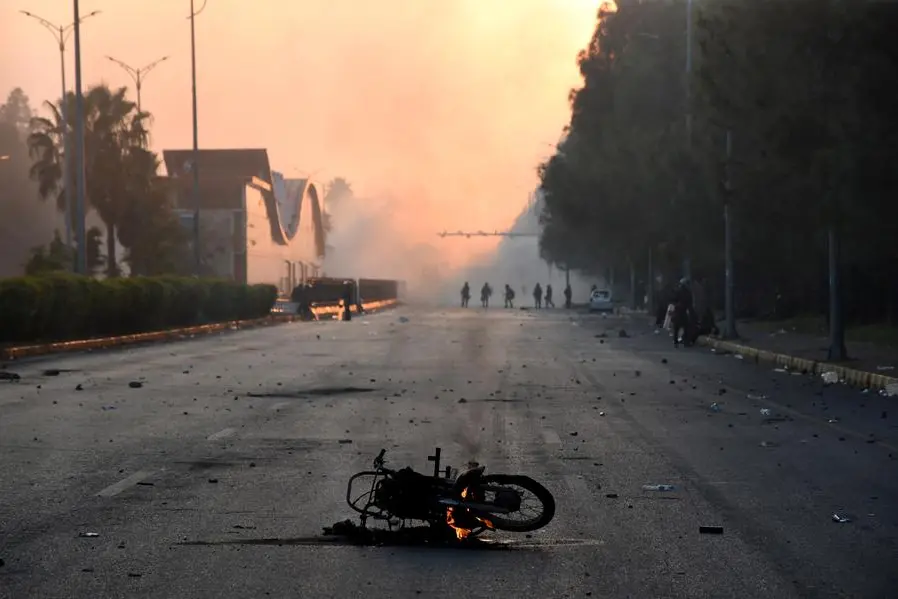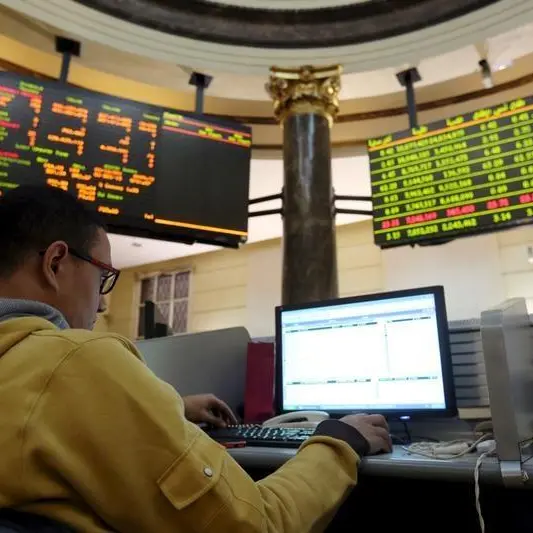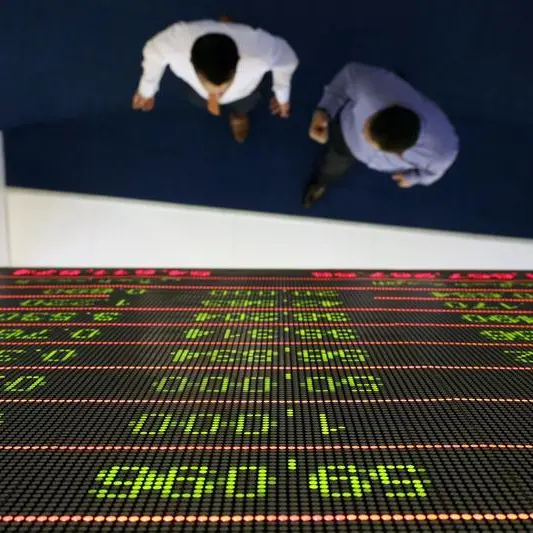PHOTO
Shares in Pakistan's benchmark index closed down 3.6% on Tuesday amid clashes in the capital Islamabad between security forces and protesters demanding the release of jailed former prime minister Imran Khan.
The South Asian economy has been on a fragile path to recovery as it navigates a $7 billion International Monetary Fund (IMF) bailout. But a surge of unrest since the weekend has raised concerns among analysts and investors about the potential impact on Pakistan's investment potential and foreign inflows.
The benchmark index was up more than 1.5% before turning lower following news of protesters gathering at their intended sit-in spot near Pakistan's parliament, despite blockades and internet disruptions.
The swing marked the index's steepest ever daily decline of 3,506 points. It closed down 3.57%.
"Investors weighed the prospects of the market nearing a record high and critical level of 100,000 points with the ongoing protests and political situation in the capital and opted to book profits, causing the record swing," said Adnan Sheikh, assistant vice president at Pakistan Kuwait Investment Company.
INVESTMENT POTENTIAL
Prolonged instability could compromise economic management, undermine investor confidence, and hamper growth, potentially disrupting progress with the IMF programme, said Ahmad Mobeen, senior economist at S&P Global Market Intelligence.
Pakistan's economy relies on foreign inflows due to low foreign investment, high consumption, and heavy import reliance.
"Protests can upset an investment case built on policy course correction and low commodity prices", said Tellimer Insights in an analyst note.
Pakistan's sovereign dollar bonds also slid as the clashes worsened. Longer-dated maturities fell the most, with the 2051 bond shedding just over 1 cent to be bid at 77.06 cents on the dollar at 1352 GMT.
INTERNET DISRUPTIONS AND BLOCKADES
Though a relatively small contribution to the national economy, Islamabad's businesses have been thrown into disarray.
Internet and social media applications like WhatsApp have also slowed since the protests began on Sunday, and have faced disruptions since August.
Foodpanda, Pakistan's largest food delivery platform, told Reuters it had shut or reduced operations in impacted areas, affecting riders, chefs, and small business owners whose "livelihoods rely on continued business operations".
A major logistics player, on condition of anonymity, reported 500,000 delayed shipments due to road closures, motorway blockades, and internet disruptions, halting movement in and out of the capital and northern regions.
Mobeen said prolonged disruptions posed risks to IT export growth, e-commerce, and economic growth. "These disruptions, if not addressed, could further erode investor confidence by highlighting business operational risks," he said.
(Reporting by Ariba Shahid in Karachi and Libby George in London; Editing by Clarence Fernandez and Mark Potter)





















